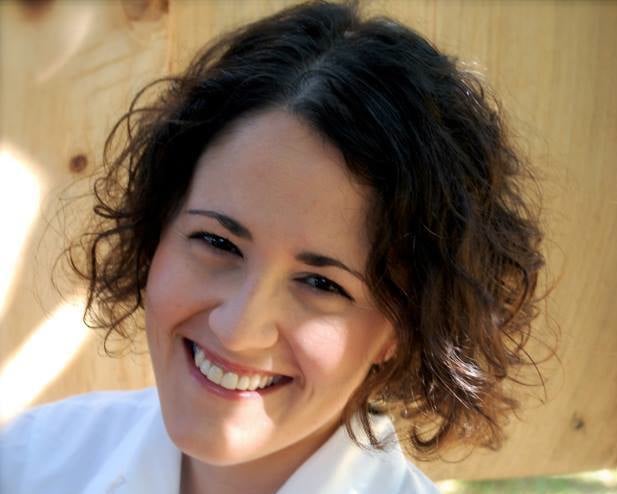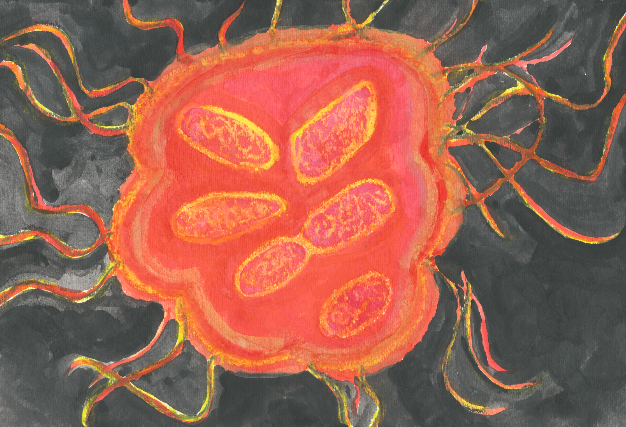 My fellow Her.meneutics blogger Amy Julia Becker has a new book, A Good and Perfect Gift: Faith, Expectations, and a Little Girl Named Penny. It’s a beautiful book, a powerful and important book, a book to read, ponder, and discuss. At birth, Amy Julia’s daughter, Penny, was diagnosed with Down syndrome. The hopes and plans she and her husband, Peter, had for the baby suddenly changed, and Amy Julia found herself wrestling with big questions–why was Penny born with an extra 21st chromosome? Was it because of sin? Was because Amy Julia and Peter needed to learn some kind of lesson?
My fellow Her.meneutics blogger Amy Julia Becker has a new book, A Good and Perfect Gift: Faith, Expectations, and a Little Girl Named Penny. It’s a beautiful book, a powerful and important book, a book to read, ponder, and discuss. At birth, Amy Julia’s daughter, Penny, was diagnosed with Down syndrome. The hopes and plans she and her husband, Peter, had for the baby suddenly changed, and Amy Julia found herself wrestling with big questions–why was Penny born with an extra 21st chromosome? Was it because of sin? Was because Amy Julia and Peter needed to learn some kind of lesson?
The book follows Amy Julia’s journey in the months following Penny’s birth as she gets to know her daughter in all her beautiful particularity and struggles against feelings she wished that she would never have: falling in love with her adorable newborn and yet crying over her. “I don’t want to cry over the birth of my daughter,” her journal from that time reads. As an outstanding student, Amy Julia had always placed a high value on the life of the mind. But loving Penny began to shatter her “idols”:
“I realized that I had always assumed it was very sad to have a child with mental retardation, or, for that matter, to be a person with mental retardation. But why? Why was that sad? […] I realized that my real question had to do with goodness […] in a God-created universe, what was good and not good in her? And was it any different from that which was good and not good in the rest of us?”
In time, wrestling with theological questions amid day-to-day life with her baby, Amy Julia makes some important realizations, among them, that her own achievements–like being a stellar student at Princeton–were not merely due to her own hard work. “My life wasn’t something I deserved,” she writes. “It was a gift.” Penny, too, is a gift, all of her, including that extra 21st chromosome (which, in time, Amy Julia and Peter come to recognize as fully a part of Penny, and something they wouldn’t change if they could). In time, the uniqueness of Penny herself–“delightful, charming, smart, wonderful Penny” erased Amy Julia’s lingering doubts and fears, making way for their family, together, to “learn what it meant to be human, what it meant to be whole.”

Recently I’ve been thinking a lot about the parable of the great banquet in Luke 14:
“He said also to the man who had invited him, ‘When you give a dinner or a banquet, do not invite your friends or your brothers or your relatives or rich neighbors, lest they also invite you in return and you be repaid. But when you give a feast, invite the poor, the crippled, the lame, the blind, and you will be blessed, because they cannot repay you.”
Jesus was happy to link arms with disabled people–people that others of his day feared as perhaps being under some kind of curse because of sin–and call them his own. He was happy to touch them and eat with them. But he doesn’t say do the same because they need it. No (though they probably do). Rather, he says do this and you will be blessed.
Maybe, weakness, disability, and other forms of brokenness frighten us because they make us aware of the parts within us that are not quite whole. What I take away from Amy Julia’s book is that we can’t become whole without embracing difference and brokenness (including our own brokenness) not just intellectually, but around the table, sharing bread; living and loving and receiving one another–even and especially those among us who are different–as the good and perfect gifts we are.
Because “the more we receive Penny, the more we welcome her, exactly as she is, the more we welcome God’s work in our lives.”

{I’m delighted to be posting this as a part of the Patheos Book Club!}












